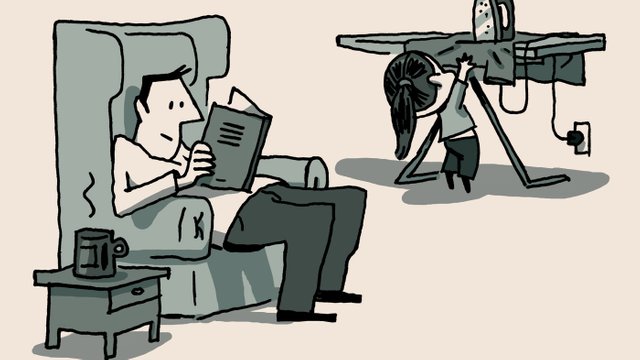Parenting—Getting the Balance Just Right
Parenting is a highly complex responsibility and, of course, there is no fixed manner of successfully accomplishing it. It not only depends on the situation, but also on the types of personalities of the parents and the children themselves. Without forgetting the role of culture in providing a backdrop for the growth of children.
There are 4 major styles of parenting—authoritarian, authoritative, permissive and uninvolved. All of these vary with regard to the interest of the parent in their responsibility towards the child as well as in the nature of the relationship between parent and child.
Psychologists believe authoritative parenting to be the best type. In this type, when the child does something wrong, the parent explains to the child why this is wrong, the negative consequences of his/her action, and provides an appropriate and reasonable punishment. This type is said to work the best because the child is made aware of WHY he/she is being punished and WHY what he/she did is wrong. The punishment serves as a negative consequence of their actions, which ensures they learn the difference of right from wrong. Children brought up under this type of parenting have higher self-esteem and confidence and achieve more in their professional and academic life.

An extreme form of parenting is the authoritarian type, where the parent simply provides a very harsh punishment to the child without explaining to him/her why it is wrong. Punishments are often arbitrary, and parents do not provide any chance for discussion or expression. Their way is the right way. Children of such parents have lower self-esteem and are more indecisive. Their achievements are not poor, but lie in the mid-range.

Two extremely poor forms of parenting are permissive and uninvolved. Permissive parents are those who 'permit' their children to do whatever they want to. They themselves do not believe that they have any control over their children. They do not place many limitations on their children's behaviour, resulting in the child becoming very entitled and demanding. Although children of such parents INITIALLY have a high self-esteem, this overindulgence is in fact unhealthy. Their initial self-esteem later crumbles when they go out into the real world and deal with other people. They may have a poor social life as they realise that they cannot get what they want with other people (who aren't their parents). The real world calls for compromise and adjustment which is new to them. They do not learn responsibility for their actions, and end up with poor achievements later on in life. A sense of entitlement coupled with low self-esteem is a dangerous combination, indeed.

Possibly the poorest form of parenting is uninvolved, where the parents are emotionally detached from their children. They look at the extent of their parental duties only till providing the basic necessities. Emotional, social and moral guidance, according to them, are not their job. Such parents do not interfere in their children's life, and hence do not even discipline them when they do something wrong. Children of uninvolved parents often get injured due to parental irresponsibility and neglect, and have poor self-esteem and have poor academic achievements.

However, it is important to note that the role of genes and other social environments do play a role in shaping the character of the individual, apart from parenting styles. For instance, a child of uninvolved parents may have the inner zeal and motivation to train himself/herself to discover, learn and develop as well as to achieve success in school and later in professional life. He/she may also have a good peer group providing a positive influence.
Likewise, parenting style may not even be fixed. Some situations may change even the most docile parent. For instance, when her child runs across the road where there is a huge truck racing at high speed, the mother won't really think about 'explaining' to the child or making him/her understand. In that situation, possibly, even the most detached parent would rush to grab their child angrily tell him/her to never do that again.
Hence, the power of the inner will and temporary situational factors must not be forgotten when talking about parenting.
Great explanation of all different types of parenting. Very well written!
Please read my article on "10 things I will teach my son".